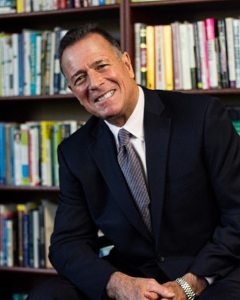


By Tino Mantella
President & CEO, Turknett Leadership Group
Hmmmm; I have to admit, I never thought much about variations on confidence. My quick kneejerk reaction would be – you either have it or you don’t. Further, if you don’t have it, you may live a life never reaching your full potential.
Since I am now given more time to contemplate, I know my shorthand theory is shallow. It seems to me that for most of us, confidence ebbs and flows and is circumstantial based on what we know, who is in the room, and a multitude of other factors. None of us are always authentic all the time.
Since I wasn’t sure how to address this topic, I did what every red-blooded-human, over the age of three, would do. I Googled it. The first thing I found was an article in thenewhappy.com. They identified four types of confidence: Precarious (based on external factors like appearance, relationships, and money); Hollow (you did what you need to do but you still don’t feel fulfilled); Pretend (acting and being someone you’re not to be “approved”); and, of course Authentic (being who you are and taking advantage of your “superpower(s)”.
I am not buying that either. I am sure I could fill pages on different types of confidence, but I won’t bash the New Happy team. I am not even all that confident that I know what I am talking about. Not to be deterred by that, I thought I would consider a small slice of the broad topic of confidence by exploring overconfidence.
I have always been interested in what happens to people who become over-confident about one or more aspects of their abilities at an early age. You and I have seen the young and the gifted flame out, or at least not reach their potential in all walks of lives. From academics to athletes, it happens.
Take high-school valedictorians and salutatorians for example. Caution to any high school overachievers because from this point on you might want to stop reading. Erica Barker, in a 2017 article about valedictorians and salutatorians referenced a study of seven-hundred American millionaires. The study found that the average college GPA was 2.9. Good; I am in the ballpark. Barker also points to Karen Arnolds’ research on valedictorians and salutatorians. Arnold, a researcher from Boston College, followed 81 high school students who met that criteria and found that 90 percent were in professional careers and 40% were in the top tier.
She goes on to say that how many of these top HS performers went on to “change the world, run the world, impress the world”. Barker says, “the answer seems to be clear: zero”. Arnold is quoted saying, “Valedictorians aren’t likely to be the future’s visionaries . . . they typically settle into the system instead of shaking it up.” Perhaps these smart ones were smart enough to realize that they didn’t have to change the world or lead the world to achieve their balance in life or perhaps things came too easy for them in their formative years.
Here are 5 ideas about why early success will not guarantee future success:
1. Confidence is fragile – someone at the top of their game at an early age, at some point may learn that they are one of many later in life. Not being the best can be a rude awakening.
2. Early achievers may not fail enough – Psychologist Perpetua Neo has said “failure is an essential part of life. If you are not failing enough, you’re not living enough”. For those of us that have failed but kept trying and then succeeded, we probably have had a great boost of confidence. Whether going down a double diamond on a ski slope without taking a fall or passing your driver’s test after rolling through a stop sign the first time (yes, I did that), there is an energy about losing and then winning that is better, in my mind, then just winning and winning.
3. “Exaggerated Optimism” – In Psychology Today, PhD Bobby Hoffman says that over-confidence can lead a person to a mindset of minimal exertion…thinking a task is easy and can be quickly completed. When it’s not, he says, “it can damage ego and reputation”.
4. Missed opportunities – Albert Bandura, in his book “Self-Efficacy: The Exercise of Control, says that excessive self-confidence can cause people to pass on opportunities that they feel are too easy or beneath them.
5. Balance – We all know people that are clearly superior in one aspect of their life…math, science, acting, sport…. but they haven’t built the other aspects of their character like social skills.
It seems to me that at the end of the day when we contemplate authentic confidence, it’s never static. Are any of us living who we truly are all of the time? How important is fitting in, getting that next promotion, marrying that women/man you want, or not losing? Anyone can be authentic and not confident, or they can be not authentic but display confidence. We all do it.
Here’s wishing that you all fail, at least once in a while. Here’s wishing that you are more often your true self than not. And here’s wishing that you are happy and contributing to society….being all that you can be.
Tino
Contact Information:
tmantella@turknett.com
President & CEO Turknett Leadership Group
Cell: 678-984-8528
Office: 770-270-1723
Bio




